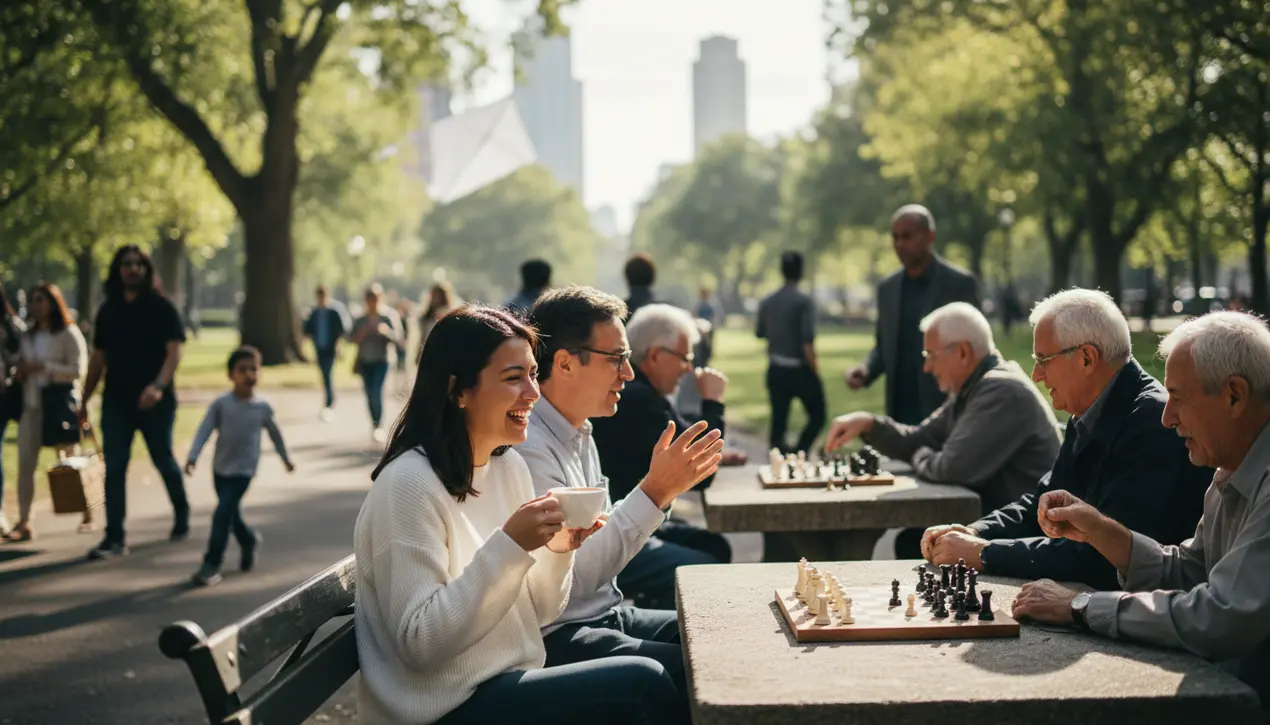
ScienceneuroscienceBrain Mapping
5 reasons why we need social connection in real life
LA
Laura Bennett
6 hours ago7 min read1 comments
In the quiet hum of our increasingly digital lives, a profound and deeply human crisis is unfolding, one that neuroscientist Ben Rein explores with compelling clarity in his new work, 'Why Brains Need Friends: The Neuroscience of Social Connection. ' The book arrives not a moment too soon, tapping into a collective unease many of us feel but struggle to articulate—the gnawing sense of isolation that persists even in a world of hyper-connectivity.Rein, an award-winning scholar and a gifted communicator who teaches neuroscience to over a million followers online, posits that our very biology is at odds with modern solitude. He argues that our brains are not merely adapted for social life; they are fundamentally constructed for it, having evolved over millennia to reward interpersonal contact with a potent cocktail of neurotransmitters like dopamine and oxytocin.This was the evolutionary glue that ensured survival against predators and scarcity, making the most social humans the fittest. Yet, today, we find ourselves in a peculiar paradox: we have more ways to communicate than ever before, but the metrics of loneliness are skyrocketing.Rein points to sobering data showing that between 2013 and 2021, the average American began spending an additional 36 hours alone each month—the equivalent of a full work week of isolation. This isn't just a statistic; it's a physiological stressor.When we are isolated, our bodies interpret it as a primal danger, triggering a cortisol-driven stress response that, when chronic, leads to systemic inflammation and a host of devastating health outcomes. The research he cites is staggering: individuals who are more isolated face a 32% increased risk of mortality from any cause, patients with dementia experience a twice-as-fast cognitive decline, and a heart attack survivor returning to an empty home is over twice as likely to die within three years.Perhaps most insightful is Rein's distinction between digital and in-person interaction. A video call or a text exchange, he explains, strips away the rich tapestry of social cues—the subtle intonation of a voice, the micro-expressions on a face, the unconscious language of a body—that our brains are hardwired to interpret.This deficit, he suggests, is fundamentally impairing our capacity for empathy and fueling the undue hostility we see online, making social media a ironically antisocial force. Compounding these modern challenges are our own innate psychological blind spots.We consistently underestimate how much we will enjoy a social gathering, leading us to choose a lonely night on the couch. We chronically undervalue our social skills and assume others like us less than they actually do.These are not personal failings but built-in biological shortcomings of the human brain, subtle traps that prevent us from seeking the very connections we need to thrive. Rein's work is a powerful reminder that the solution to the loneliness epidemic isn't just a matter of policy or technology, but a return to a fundamental truth written into our neural circuitry: we are, and always have been, creatures of community.
#social connection
#neuroscience
#loneliness
#mental health
#brain chemistry
#stress
#digital interaction
#editorial picks news
Stay Informed. Act Smarter.
Get weekly highlights, major headlines, and expert insights — then put your knowledge to work in our live prediction markets.
Related News
Comments
Loading comments...
© 2025 Outpoll Service LTD. All rights reserved.